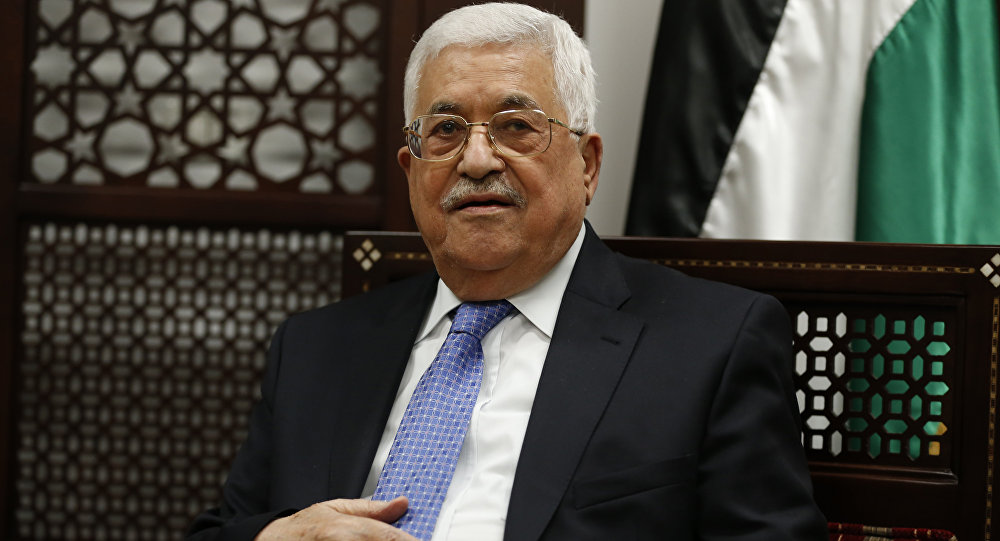US President Donald Trump is set to hold talks at the White House on Wednesday with Palestinian President Mahmoud Abbas as he bids to achieve steps towards peace in the Palestinian-Israeli conflict.
After hosting Israeli Prime Minister Benjamin Netanyahu in February, the self-styled deal-maker-in-chief will host Abbas for the first time since coming to office.
“The President’s ultimate goal is to establish peace in the region,” said White House press secretary Sean Spicer.
That long-shot effort — which has eluded US presidents since the 1970s — got off to a rocky start early in Trump’s administration when the president renounced US support for a Palestinian state and vowed to move the US embassy to Jerusalem, breaking two tenets of US policy held for decades.
Vice President Mike Pence on Tuesday said Trump is still “giving serious consideration into moving the American embassy in Tel Aviv to Jerusalem.”
That move would likely spark Palestinian fury and is privately seen by many in the Israel and US security establishments as needlessly inflammatory.
At the same time, Trump has urged Israel to hold back on settlement building in the West Bank, a longstanding concern of Palestinians and much of the world.
Pence said Trump is “personally committed to resolving the Israeli and Palestinian conflict” and “valuable progress” is being made.
“Momentum is building and goodwill is growing,” he said at an Israeli Independence Day event at the White House.
Abbas makes the trip to Washington while politically unpopular back home, with polls suggesting most Palestinians want the 82-year-old to resign. His term was meant to expire in 2009, but he has remained in office with no elections held.
But he will be hoping Trump can pressure Israel into concessions he believes are necessary to salvage a two-state solution to one of the world’s longest-running conflicts.
Palestinian officials have seen their cause overshadowed by worry over global concerns such as the war in Syria and ISIS terror group, and want Trump’s White House to bring it back to the forefront.
A group of three influential Republican Senators — Marco Rubio, Tom Cotton and Lindsey Graham — have called on Trump to ask Abbas to stop funding Palestinian prisoners and their families.
That could prose major domestic political headaches for Abbas, as he battles unpopularity and challenges from rival factions. The issue of stipends for families of Palestinians killed or jailed in the context of the conflict with Israel is sensitive. Israel considers such payments a reward for terrorists, but stopping them seems untenable to Abbas, especially at a time of broad Palestinian support for a mass hunger strike of prisoners held by Israel.
While Abbas will be challenged on the payments, Trump will also use their meeting to recommit the United States to helping the Palestinians improve their economic conditions, said the US officials, who weren’t authorized to publicly preview the talks and demanded anonymity.
But according to former White House official Dennis Ross, Trump is in some ways helping Abbas by extending the White House invite. But mutual distrust between Palestinians and Israelis will be a formidable, if not impossible, barrier for Trump to overcome.
The peace process has been stalled since 2014 when former Secretary of State John Kerry’s effort to lead the sides into peace talks collapsed. Since then, there have been no serious attempts to get negotiations restarted. The Obama administration spent its last months in office attempting to preserve conditions for an eventual resumption.
“We hope this will be a new beginning,” Abbas told Palestinians at a meeting in Washington on the eve of the talks.
He blamed the lack of dialogue in recent years on the Israeli government, saying its leaders “have no political vision,” and reiterated his demands for an independent Palestinian state along pre-1967 lines, with east Jerusalem as its capital.
“Without this we will not accept any solution,” said Abbas, who touted an Arab League peace plan that offers Israel diplomatic relations with the Muslim world for a Palestinian state. “There is no alternative.”
Israel rejects the 1967 lines as a possible border, saying it would impose grave security risks. Netanyahu hasn’t outlined an alternative demarcation.
Abbas also criticized ideas for a “one state” peace agreement, saying it could mean “racial discrimination” or an apartheid-like system. Left unspoken was the apparent reference to Trump.
